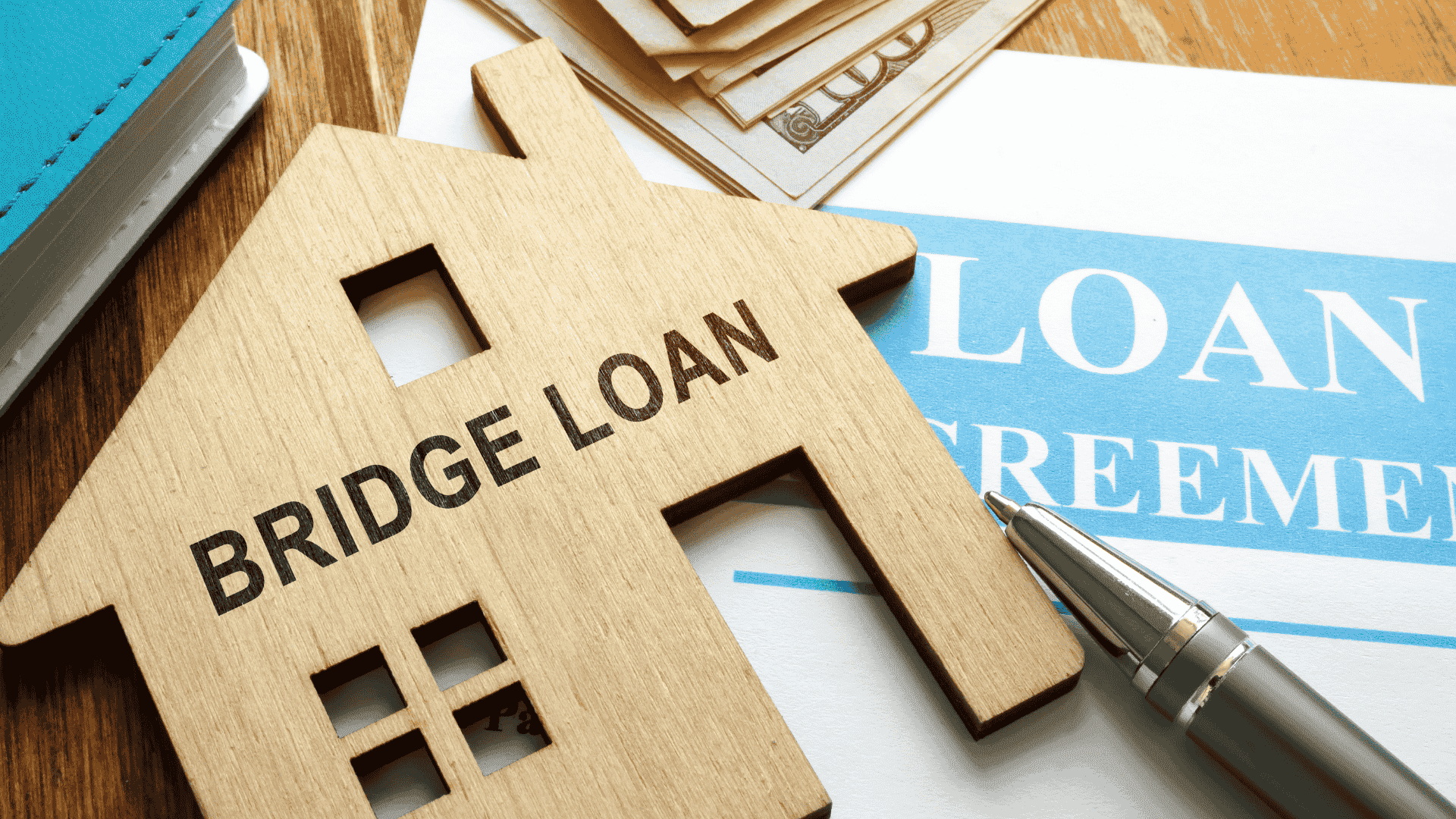Small and medium-sized enterprises (SMEs) in the Philippines comprise 99% of existing businesses, with approximately 1.2 million SMEs operating across the country. Despite their significant presence, these businesses face a substantial funding gap, often struggling to secure the necessary capital for growth and operations.
In this context, bridge loans can provide a short-term solution, offering quick access to funds for urgent financial needs. However, many businesses hesitate due to high interest rates and rigid repayment terms. Understanding the rates and terms of these loans is critical in securing the best deal for your business.
In this article, we'll explore the complexities associated with commercial bridge loans, revealing not only the benefits of quick approval and flexibility but also potential pitfalls, such as higher interest rates and additional fees.
TL;DR
- Bridge loans offer fast, short-term financing, ideal for businesses needing immediate capital.
- Rates range from 8% to 18%, influenced by creditworthiness, loan amount, and collateral.
- While they provide quick access to funds, businesses should be aware of the high costs and risks.
- It's crucial to assess your financial health and compare loan options to secure the best deal.
What Are Commercial Bridge Loans?
Commercial bridge loans are temporary financial solutions that businesses use to cover short-term funding needs. They are typically used to bridge the gap between the immediate financial requirements and the availability of long-term financing.
Bridge loans are typically secured against the business’s assets, such as real estate or equipment. They are fast and convenient, often enabling businesses to cover expenses such as working capital, acquisitions, or property purchases.
Key Factors Affecting Bridge Loan Rates
Several factors influence the interest rate and terms of a commercial bridge loan. These factors include:
- Creditworthiness: Lenders assess the borrower’s credit score and financial health to determine the risk. Higher credit scores typically result in lower interest rates.
- Loan Amount: Larger loans are often seen as less risky for lenders due to their higher collateral value.
- Collateral: Offering assets, such as property or equipment, as collateral can reduce the lender’s risk, leading to more favorable loan terms.
- Term Length: Shorter loan terms (typically 12 months or less) often carry higher rates due to their accelerated repayment schedules, whereas longer terms may offer slightly lower rates.
- Risk Appetite: Each lender has a different approach to risk. Some may offer lower rates to established businesses, while others may charge higher rates to cover the increased risks.
Bridge loans are often higher-interest compared to long-term financing due to their short repayment periods, typically ranging from 6 to 12 months.
Average Commercial Bridge Loan Rates in the Philippines

The commercial bridge loan rates in the Philippines can vary depending on multiple factors such as market conditions, economic climate, and the financial health of the borrowing business.
Below, we’ll explore what you might expect in terms of commercial bridge loan rates.
Current Market Trends
Over the years, commercial bridge loan rates in the Philippines have fluctuated. Key economic factors, including inflation, central bank policies, and demand for short-term credit, influence these rates.
- Higher Competition: With more players in the market, lenders are offering better rates to attract borrowers.
- Rise in Alternative Lenders: Private lenders, such as n90, are providing flexible terms and faster approval times, along with favorable interest rates.
- Inflation Effects: Inflation increases borrowing costs, which may lead to slightly higher interest rates for businesses.
In fact, the SME funding gap in the Philippines is estimated to be approximately $221 billion by 2025, underscoring the significant need for accessible financing solutions. As more SMEs seek funding, the demand for bridge loans will likely continue to rise, influencing rates and loan availability.
Commercial Bridge Loan Interest Rate Range
The interest rate for commercial bridge loans in the Philippines typically ranges from 8% to 18% per annum.
- For established businesses, rates can range from 8% to 12%, depending on creditworthiness and the collateral offered.
- For newer or higher-risk businesses, rates are often higher, typically ranging from 15% to 18% annually.
- Additional Costs: In addition to the interest rate, be aware of processing fees or administrative charges that can increase your total borrowing cost.
Key Lenders Offering Commercial Bridge Loans in the Philippines

Several financial institutions and lending companies in the Philippines provide commercial bridge loans, each offering varying terms and rates. Some key lenders include:
Traditional Banks
Traditional banks are often the go-to choice for established businesses due to their reliable reputation and structured loan policies. They typically offer bridge loans at competitive interest rates, making them attractive for long-term financial solutions. However, they come with rigorous application processes and require comprehensive documentation.
Microfinance Institutions (MFIs)
For SMEs or startups, microfinance institutions provide a welcoming alternative with their more relaxed criteria. While the interest rates might be higher than those of traditional banks, the flexibility in terms and collateral requirements can make them an accessible option for growing enterprises.
Online Lending Platforms
The rise of online lending platforms has added a layer of convenience to obtaining bridge loans. These platforms boast swift application and approval processes, catering well to businesses requiring quick access to funds.
Although the speed and convenience can result in higher fees, the platform's tech-driven nature offers highly flexible terms that appeal to SMEs and startups.
Government Loan Programs
Government loan schemes target business liquidity and serve a broader mandate of economic stabilisation, often providing subsidised rates. These programs, although sometimes capped and eligibility-restricted, offer tailored solutions for businesses of varying sizes.
Private Capital Investors
Fast, flexible, and often sophisticated, private capital investors, also known as hard money lenders, serve businesses requiring immediate liquidity.
- Banks: Major banks, such as BDO, Metrobank, and BPI, offer commercial bridge loans. These institutions typically offer more stable financing options but may require stringent qualification requirements.
- Private Lenders: Private lenders may offer more flexible loan terms and faster approval processes, although their interest rates may be slightly higher than those of traditional banks.
Each lender has its strengths and weaknesses. When selecting a lender, businesses should consider customer service, loan terms, and associated fees.
How to Secure the Best Commercial Bridge Loan Rates

Securing the best rates for a commercial bridge loan requires careful preparation and strategy. Here are some essential steps to help businesses obtain the most competitive rates:
1. Assess Your Financial Health
Before applying for a bridge loan, you should:
- Review your credit score: A strong credit score will help you qualify for lower interest rates.
- Evaluate your financial statements: Be transparent about your business’s financial health to make informed borrowing decisions.
2. Shop Around for the Best Deals
Don't settle for the first loan offer. Instead:
- Compare rates from different lenders, including banks, private lenders, and online lenders.
- Consider the total cost of the loan, including any hidden fees or charges.
3. Offer Collateral
Providing collateral can reduce the lender's risk, potentially leading to better rates. Common types of collateral include:
- Real estate
- Equipment
- Inventory
4. Negotiate Loan Terms
Be prepared to negotiate the interest rate, loan amount, and repayment terms. Lenders may be willing to offer more favorable terms if you present a strong case and can prove your financial stability.
5. Consult with a Financial Advisor
Financial advisors can help businesses assess their financing options and negotiate the best possible deal. They can also guide you on whether a bridge loan is the right solution for your needs.
Risks and Considerations of Commercial Bridge Loans
While commercial bridge loans are a valuable tool, they come with certain risks that businesses should carefully consider:
- High Interest Rates: Bridge loans typically have higher interest rates compared to long-term loans, which can increase the overall cost of borrowing.
- Short Repayment Terms: Since bridge loans are designed to be repaid quickly (usually within 12 months), businesses may face cash flow issues if they are unable to repay the loan on time.
- Secured Loans: Many bridge loans require collateral, which can be at risk if the loan is not repaid. If the business defaults, the lender may seize the assets offered as collateral.
- Overborrowing: Businesses may be tempted to borrow more than necessary, leading to higher debt obligations and financial strain.
Understanding these risks is crucial in determining whether a commercial bridge loan is the right option for your business.
How to Apply for a Commercial Bridge Loan in the Philippines

The process for applying for a commercial bridge loan in the Philippines generally involves several key steps:
- Evaluate Your Funding Needs: Determine the amount of money you need and how it will be used. This will help guide the loan application process.
- Gather Required Documents: Lenders typically ask for:
- Business registration documents
- Financial statements (e.g., balance sheet, income statement)
- Proof of income and assets
- Choose the Right Lender: Research and select a lender that aligns with your needs, whether that’s a bank, microfinance institution, or alternative lender like n90.
- Submit Your Application: Complete the application form and provide all necessary documentation.
- Review Loan Terms: After approval, carefully review the loan terms, including the interest rate, repayment schedule, and any applicable fees.
- Sign the Agreement: After reviewing and agreeing to the terms, sign the loan agreement and await the disbursement of funds.
How n90 Can Help You Secure Competitive Bridge Loan Rates
At n90, we go beyond standard lending—we build partnerships. Our team works closely with small and medium-sized businesses like yours across the Philippines to tailor bridge loan solutions that align with your cash flow, timeline, and goals.
By understanding your unique challenges, we help you secure competitive rates, avoid hidden costs, and access the funding you need—right when you need it.
Here’s how n90 can assist:
- Bridge Loans: Ideal for businesses seeking quick, short-term financing to bridge cash flow gaps or capitalise on time-sensitive opportunities. n90’s quick approval process and clear terms ensure that your business can access liquidity when it matters most, without hidden fees or long waiting periods.
- Invoice Financing: For businesses experiencing slow-paying clients, n90’s invoice financing options offer an excellent way to unlock cash tied up in outstanding invoices. This enables you to maintain smooth operations while avoiding the need for long-term debt commitments.
- Small Business Loans: n90 also offers flexible small business loans with manageable repayment schedules. These loans are designed to support everything from day-to-day operations to growth initiatives, providing you with the financial freedom to scale your business without placing excessive strain on your budget.
With n90’s range of financing options, you can easily compare and select the right loan that suits your needs. Their transparent approach to lending and commitment to securing the best rates mean that you can handle your financial journey with confidence.
Conclusion
Securing the right commercial bridge loan can be a game-changer for your business—helping you cover urgent expenses, take advantage of growth opportunities, or stabilise cash flow during unpredictable periods. But getting the best deal means more than just fast funding. It requires a clear understanding of interest rates, terms, and how they impact your bottom line. With the right financial partner, you won’t just bridge gaps—you’ll build momentum.
At n90, we don’t just offer loans—we craft smart, flexible financing solutions built around your business needs. From competitive rates to transparent terms and expert guidance, we help you move quickly and confidently.
Get in touch with n90 today to explore tailored solutions and competitive rates for your bridge loan needs. Call us at +63 962 663 1393 for personalised financial advice.
FAQs
Q. Is bridge financing risky?
Ans. Yes, bridge financing can be risky due to its short-term nature and high interest rates. If the property or project doesn’t sell or generate expected returns within the agreed term, borrowers may face financial strain or penalties.
Q. Can I get a 100% bridging loan?
Ans. Typically, 100% bridging loans are rare. Lenders usually offer a percentage of the property value, often up to 70-80%, with the borrower required to contribute a deposit or collateral for the remainder.
Q. What is the maximum term for a bridging loan?
Ans. The maximum term for a bridging loan usually ranges from 12 to 24 months. However, some lenders may extend terms depending on the borrower's circumstances and the property involved.
Q. What is the lowest commercial loan rate?
Ans. The lowest commercial loan rates can vary but typically start at around 3-4% for well-qualified borrowers. Rates depend on factors like the loan type, lender, and the borrower's financial profile.














